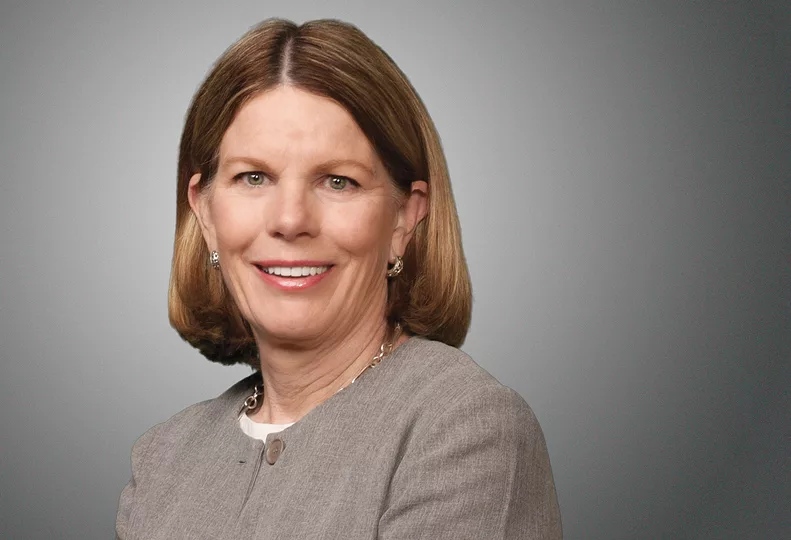Parting Thoughts with Avista's Marian Durkin
~

Marian Durkin is retiring after 15 years at Avista Corp., where she helped to build its legal and compliance departments from the ground up.
Durkin was born on the East Coast, and she says she’s been working her way westward ever since. She attended law school at night in Minnesota while working as a paralegal at the Minneapolis law firm Briggs & Morgan PA, where she became an attorney after passing the bar exam. Durkin later became vice president, deputy general counsel, and assistant corporate secretary at United Airlines headquarters in Chicago. There, she experienced the heartache and challenges of the 9/11 attacks and the subsequent bankruptcy of United Airlines Inc.
Durkin became senior vice president and general counsel upon arriving at Avista in August 2005. Within about a year, she added chief compliance officer and corporate secretary to her titles.
Durkin officially leaves Avista in August.
Journal: How did you come to work at Avista?
Durkin: They were looking for a general counsel, and they wanted somebody with regulatory background. A friend of mine worked at a firm that had done some legal work for the company. When she heard that the company was looking for someone, she asked if she could submit my name. I said yes, and the rest is history.
What have been some high points in your career?
One of the things that happened recently was a high point. When I came to Avista, I had the opportunity to build up both the legal department and the compliance group. The compliance team and I, a couple of years ago, had decided we’d like to see if the company could get recognition as one of the world’s most ethical companies. In February, they were successful in earning that recognition, which I think is a real high point for the company and my team.
It recognizes what I recognized when I interviewed with the company: that this is a terrific company with a terrific culture. It was a delight to help build on that culture. One of the reasons I accepted the job was it was a culture I wanted to work in, one that respected its communities, one that respected its employees and is truly a great place to work.
What about Avista’s employees and company culture has resonated with you?
No matter the problem that was in front of people, at the end of the day, from what I could tell, we always chose to do what was right. It maybe wasn’t the most expedient or whatever, but it was always, I felt, the right thing to do. I think a company that can use that as its north star is really a special place.
How has the industry changed since you started?
Lots of things, like the big push around renewables. For us, what we’re doing at Catalyst (Avista is involved in developing the Catalyst Building and the Scott Morris Center for Energy Innovation in Spokane’s University District), and the innovation that’s occurred over the last 15 years in the industry. We still deliver power and gas to our customers, but the way the power is generated and distributed is changing, and it’s pretty exciting.
How have those changes impacted your career?
There are different legal challenges that come with any new innovation and new way of doing things. For example, we applied for a lot of patents on some things we’ve done, so we’ve had to do a lot more patent work. My team’s done a great job on that. We do wind contracts for example—this is all different than it was when I first arrived.
What’s the greatest challenge you’ve faced in your career?
I won’t say it’s a challenge, but something that is really important in how I do my work is that you have to build trust. You have to build trust with the board and the company and the people who work at the company. It’s something that is earned. That’s something I continue to earn every day. Creating and building that trust — and keeping it — is something that is always in front of me.
Looking back, is there anything you wish you had done differently?
No, I don’t think so. I’ve had a really great career, and I’ve had wonderful mentors along the way who have really helped me to get to where I am today. I’ve lived through some rough events, like 9/11 and the bankruptcy at United. I was very lucky in my career that I had people who cared about my development and who helped me along the way. I hope I’ve been able to do that for the people I’ve worked with.
What advice do you have for young people who are looking to land in a position like yours?
One of the things that really helped me in my career is that I was presented with a lot of different projects, and I took a lot of them on, not always appreciating what I could learn. Keep yourself open. Another thing that has helped me a lot—and I think doesn’t fade with time or generations—is to be a learner. Be open. Be willing to learn from those around you.
What’s next for you?
Once we are able to travel, I’d like to start traveling again. That’s something I really enjoy doing. I’d like to spend more time with my grandkids.
This interview has been edited for length and clarity.
Related Articles

_c.webp?t=1763626051)
_web.webp?t=1764835652)

